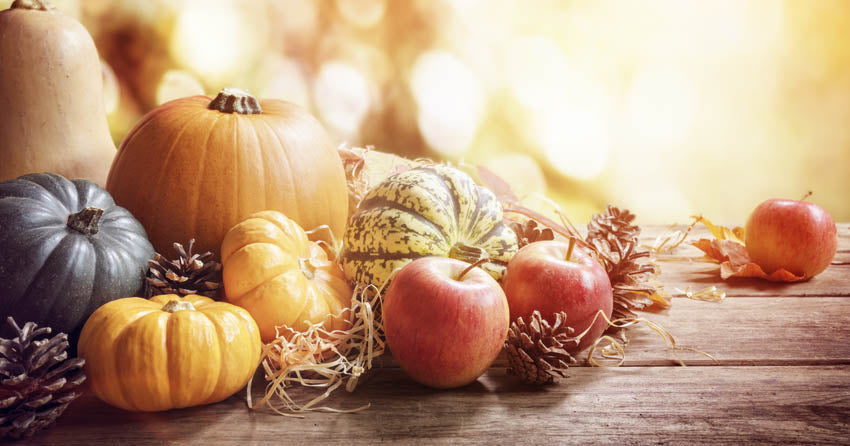Rituals and Traditions: Friend or Foe?

It’s Fall here in the Northern Hemisphere, which means the beginning of many rituals and traditions. School starts, and Halloween is around the corner, along with Thanksgiving and Christmas. Rosh Hashanah and Yom Kippur, the two High Holy Days in the Jewish religion, are in the Fall. The Autumnal Equinox is September 22 this year; the World Series starts October 26; and Dia de los Muertos (Day of the Dead) is November 1.
So, what do all of these happenings mean for our health and wellness? Rituals and traditions.
Wikipedia tells us that “Rituals are a sequence of activities involving gestures, words, actions, or objects, performed according to a set sequence. Rituals may be prescribed by the traditions of a community, including a religious community. Rituals are characterized, but not defined, by formalism, traditionalism, invariance, rule-governance, sacral symbolism, and performance.” In other words, rituals are those activities we establish – in our lives, our families, our cultures – to commemorate a specific event or rite of passage.
Traditions are “beliefs or behaviors (folk custom) passed down within a group or society with symbolic meaning or special significance with origins in the past.” Traditions have much to do with our beliefs and patterns and can be passed down through generations. Much like the old telephone game, however, the meaning of the tradition can get lost in translation. Remember the story about cutting the end of the ham? There are many versions of the story, but the gist is “we’ve always done it this way,” so it’s our tradition.
Rituals are part of the human experience. In this article from the National Academies of Sciences Engineering and Medicine (NASEM), Christine Legare, a psychologist and director of the Center for Applied Cognitive Science (CACS) at the University of Texas at Austin, asserts that rituals are “socially, shared, socially stipulated practices” and are “essential to meeting our physical, social and psychological needs…”
Rituals and traditions can be comforting. Knowing you’ll enjoy your Aunt Betty’s homemade dinner rolls at Thanksgiving dinner may be something you look forward to all year. One of my yearly pleasures is hearing Susan Stamberg’s Cranberry Relish Tradition. I’ve heard it every year for at least the past ten years, and each time I’m thrilled to hear it again. Celebrating your grandbabies dressed up for Halloween might be more your jam. Whatever the ritual or tradition is, preparing for it, looking forward to it, and then experiencing it can be that comforting quilt you wrap up in.
Merriam Webster defines ritual as “an act or series of acts regularly repeated in a set precise manner” and traditions as “cultural continuity in social attitudes, customs, and institutions.” That regularity and continuity can help calm us. A 2013 Scientific American article, Why Rituals Work, points out:
People engage in rituals with the intention of achieving a wide set of desired outcomes, from reducing their anxiety to boosting their confidence, alleviating their grief to performing well in a competition – or even making it rain.
Like most of us, my husband doesn’t like pain, and he especially doesn’t like pain inflicted on his body by others – like the dentist drilling his teeth, the phlebotomist taking his blood, or the nurse giving him a shot. His ritual when he knows that pain is on its way is to press his fingernail into his thumb, thereby inflicting pain upon himself, which he can ratchet up or down corresponding to the pain being inflicted by someone else. Effective? It is for him.
Rituals and traditions provide a sense of connection. Growing up, we knew that Sunday dinner would be beans and cornbread with fried potatoes or sauerkraut and wieners. Family members, near and far, blood-related or not, knew there was room for them at Grandma Gray’s table. We were connected and we knew, just like we could count on these meals, we could count on one another. We created memories around that table that have sustained many of us through the loss of loved ones.
On the other hand, rituals and traditions can cause discomfort. When family disagreements threaten the harmonious carving of the turkey and pouring of the gravy, your stomach may seize, and you find yourself wanting to run far away. For some people, holiday rituals and traditions mean major stress triggers. Not everyone wants to spend holidays with their family of origin. That’s ok. Remember: normal is a setting on a washing machine.
In her article, How to Survive the Holidays When You Hate Your Family, Molly Longman offers a set of suggestions to help you get through the stress, from acknowledging the dread to just not seeing your family. If you find family rituals and traditions too stressful, perhaps this is a good time to develop your own rituals and traditions.
What traditions and rituals do you observe? How do they impact your wellbeing? Let us know in the comments below.







